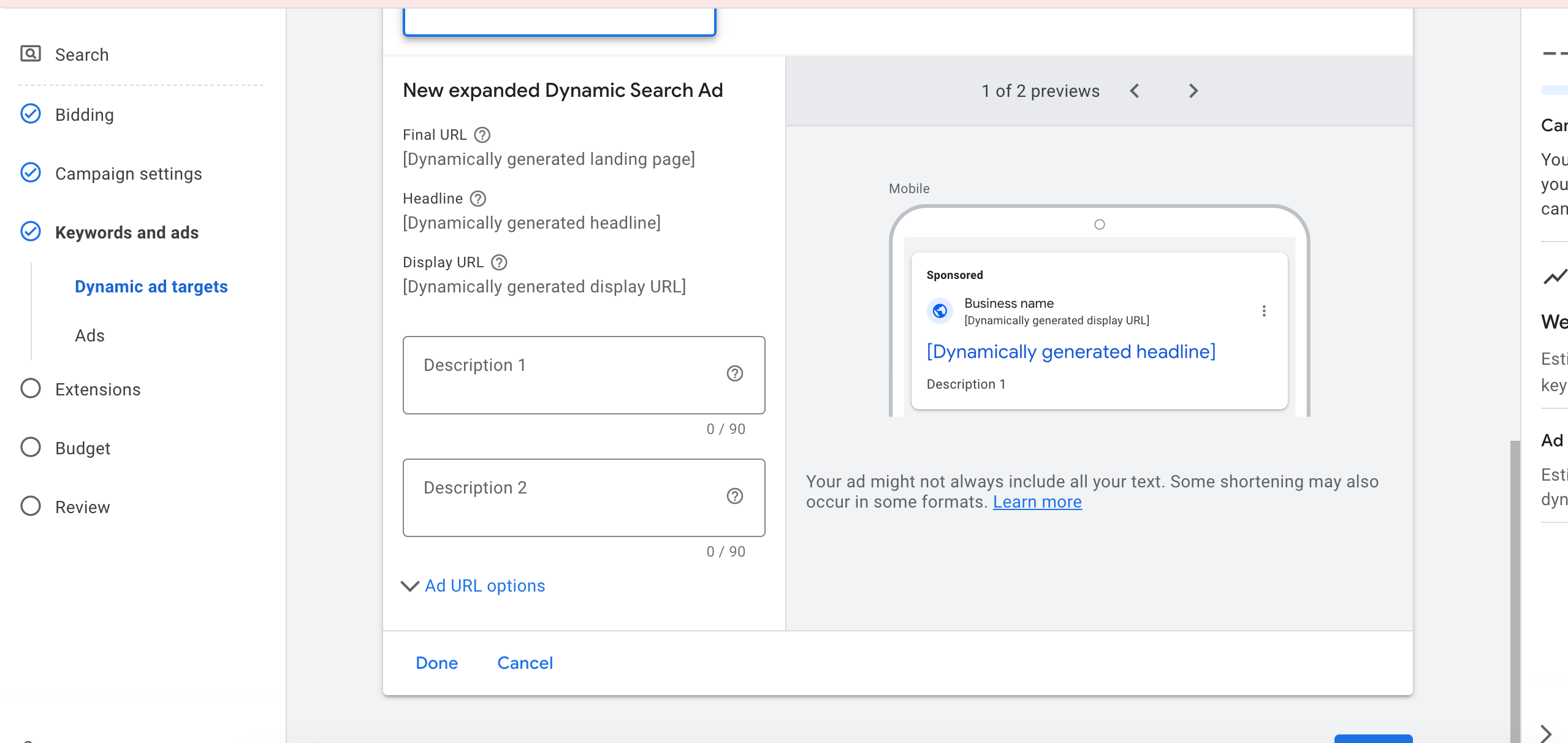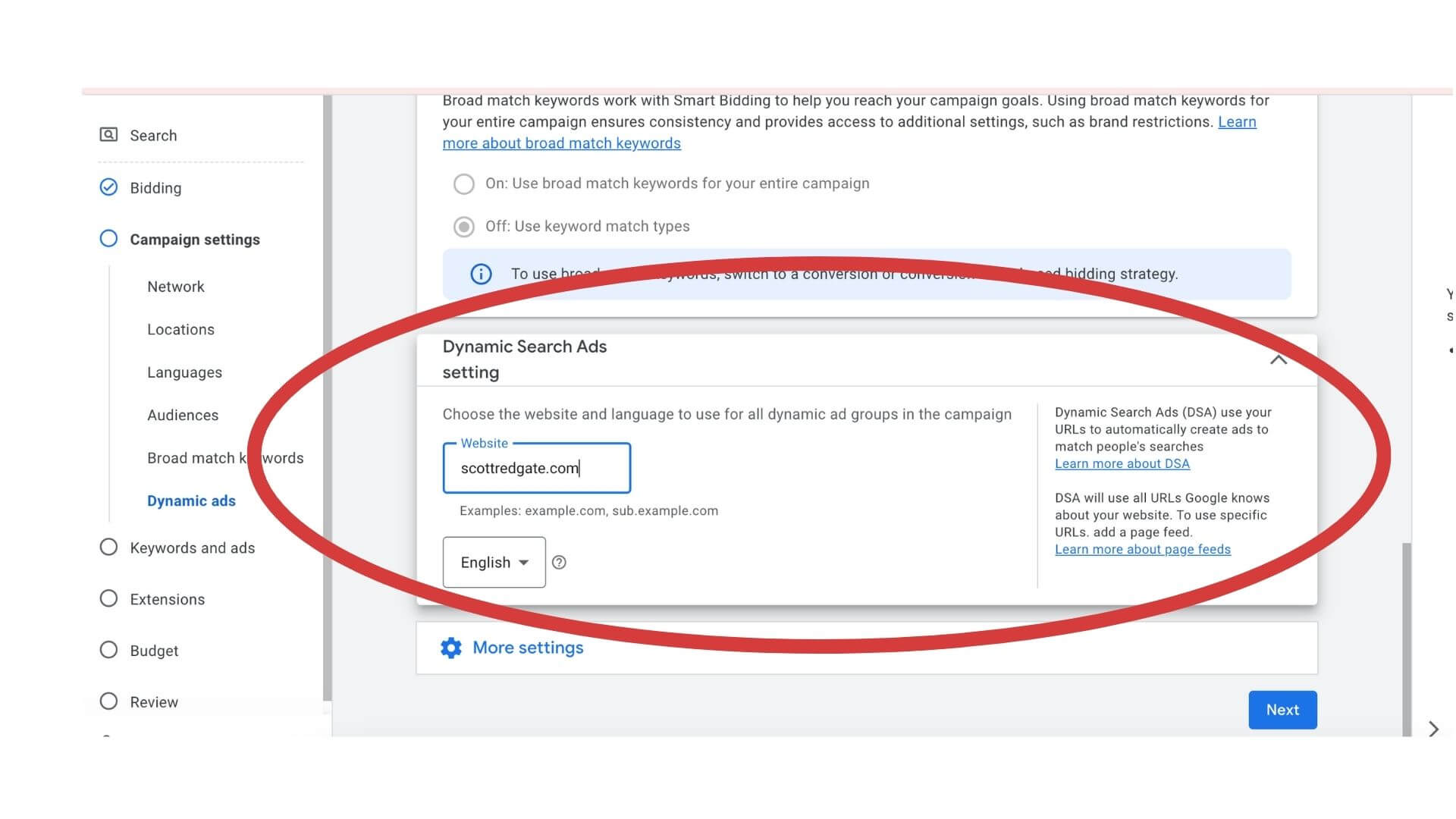Dynamic Search Campaigns in Google Ads
In our fast-paced digital world, having an online presence for your business isn't just an option—it's a necessity. Google Ads, for instance, can be an incredibly effective way to connect with your potential customers. But let's be real, the process can feel like trying to solve a Rubik's cube, especially if you're new to it.
Balancing all the critical tasks that your business demands while trying to master Google Ads can sometimes feel like a tall task! As a result, you may be considering handing off the management of Google Ads to an agency (that charges a lot and doesn't really understand your business). But what if there was a simpler, more efficient way?
Dynamic Search Ads (DSAs)
Enter the world of Dynamic Search Ads (DSAs). These are a unique type of Google Ads campaign that automatically generate ads based on your website content. You don't have to do a second of keyword research. Google essentially scans your web pages and attempts to match your pages to relevant search terms users are typing in on Google. The benefits? It saves time, ensures your ads appear for relevant searches by potential customers, and helps you discover new keyword opportunities for future campaigns.
You don't have to input a headline or display URL as Google will automatically generate these, based on the content of the page.

How to Set Up a DSA
To create a dynamic search campaign, you go into the Google ads interface, create a new campaign, select ‘create a campaign without a goal’s guidance’ and then select 'Search' as the campaign type. In the campaign’s settings, you’ll see the Dynamic Search Ads setting and you can input your website’s domain.
3 Tips for a Successful DSA
Start with a low bid. While your ad will start showing for some good search terms, it will also show for terms that may not be assisting with the conversion journey of your customer. If you bid low at the start, you'll be giving yourself some wiggle room at the start and avoid any Google Ads mistakes. Post-launch, keep an eye on the search terms list and add negative keywords to improve the performance of the DSA. This will help your campaign get better over time. Pro tip: Successful search terms can be added to a traditional search campaign as keywords for more control over ad text, landing pages, and extensions. If you go this route, you can add that successful search term as a negative keyword in the dynamic search campaign.
Who Should Use DSAs?
I really like Dynamic Search Campaigns in accounts where the cost-per-click is typically high. Why? You'll be able to find some untapped keyword opportunities that perform well for you without breaking the bank. I also like Dynamic Search Campaigns in accounts where the advertiser managing the account doesn't really understand the process of keyword research for Search Campaigns.
Final Thoughts
Take the plunge with DSAs while you can, as Performance Max campaigns may replace them! Make sure to structure your budget and bid to take into account that there may be some not-so-relevant search terms to sneak through. But if you monitor the search terms list post-launch, and have a low bid at the start, you'll have an opportunity to succeed with this campaign type!
Stop Wasting Money Marketing Your Business Online
Join my email list to get your copy of the Online Marketing Jumpstart PDF!
We hate SPAM. We will never sell your information, for any reason.


